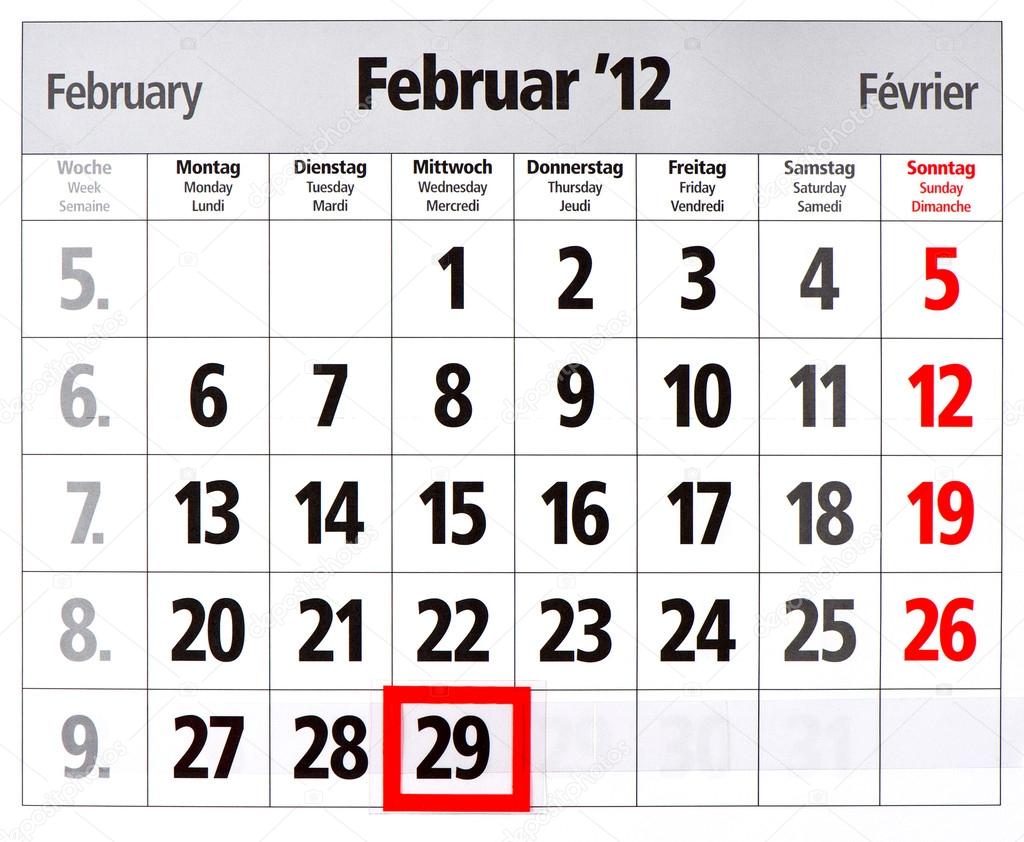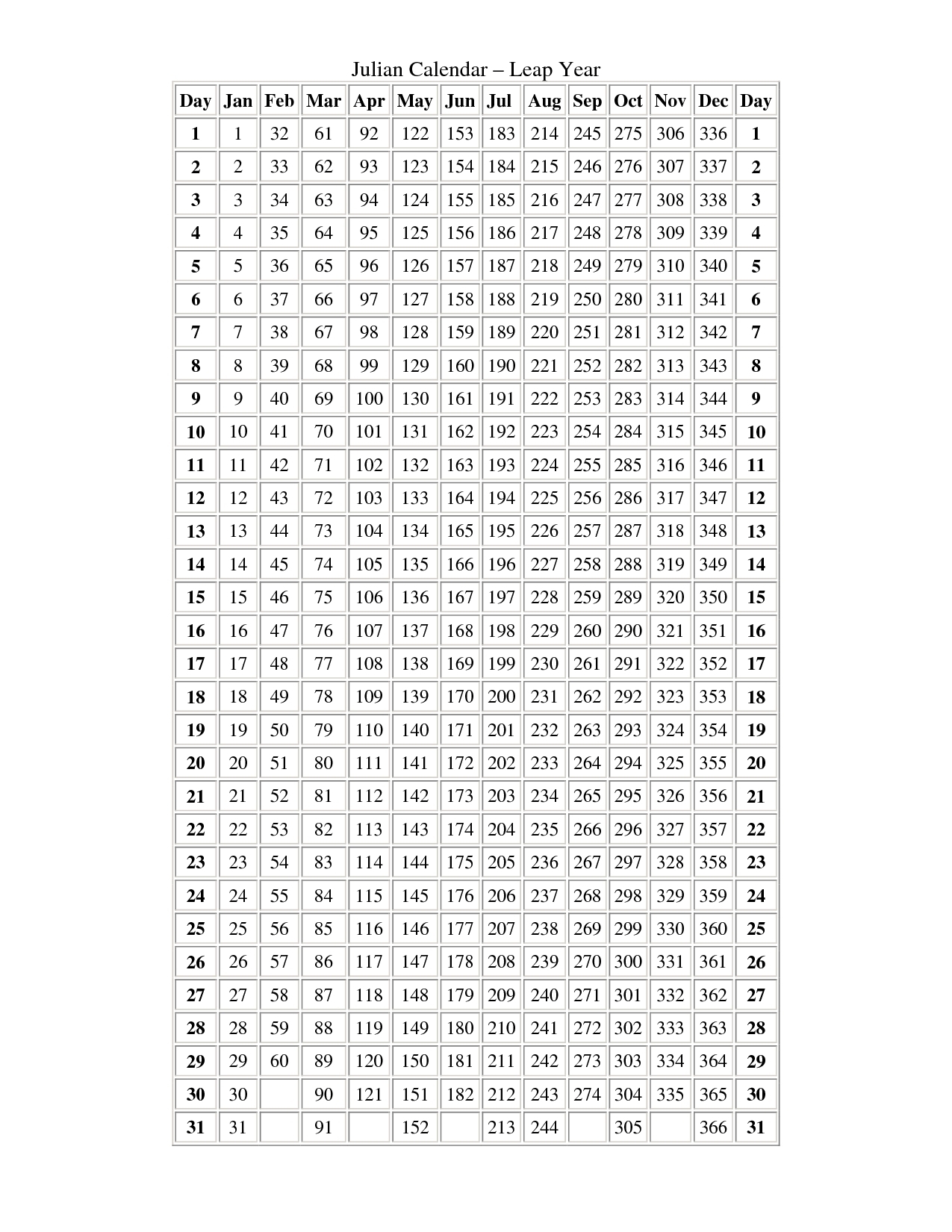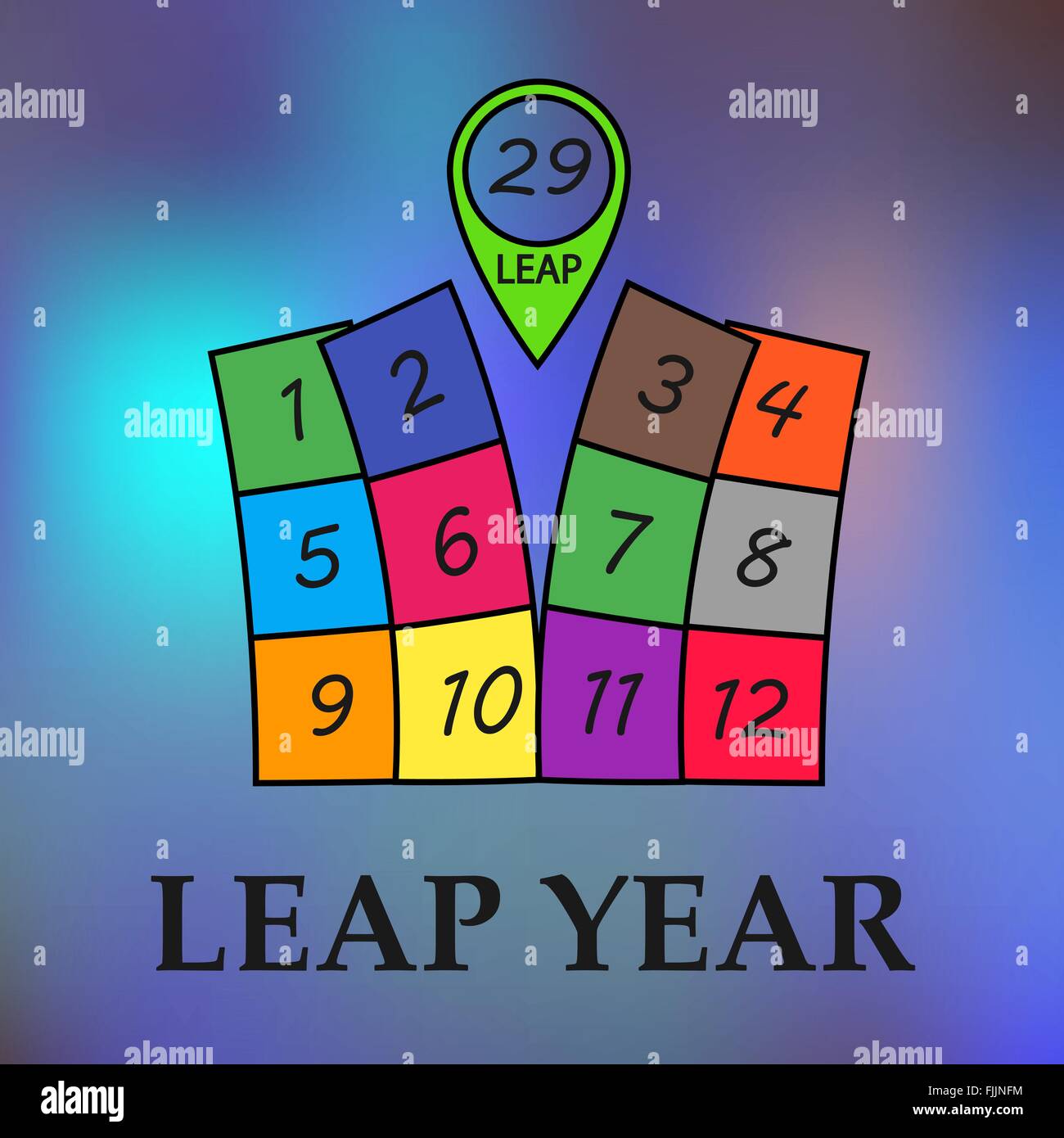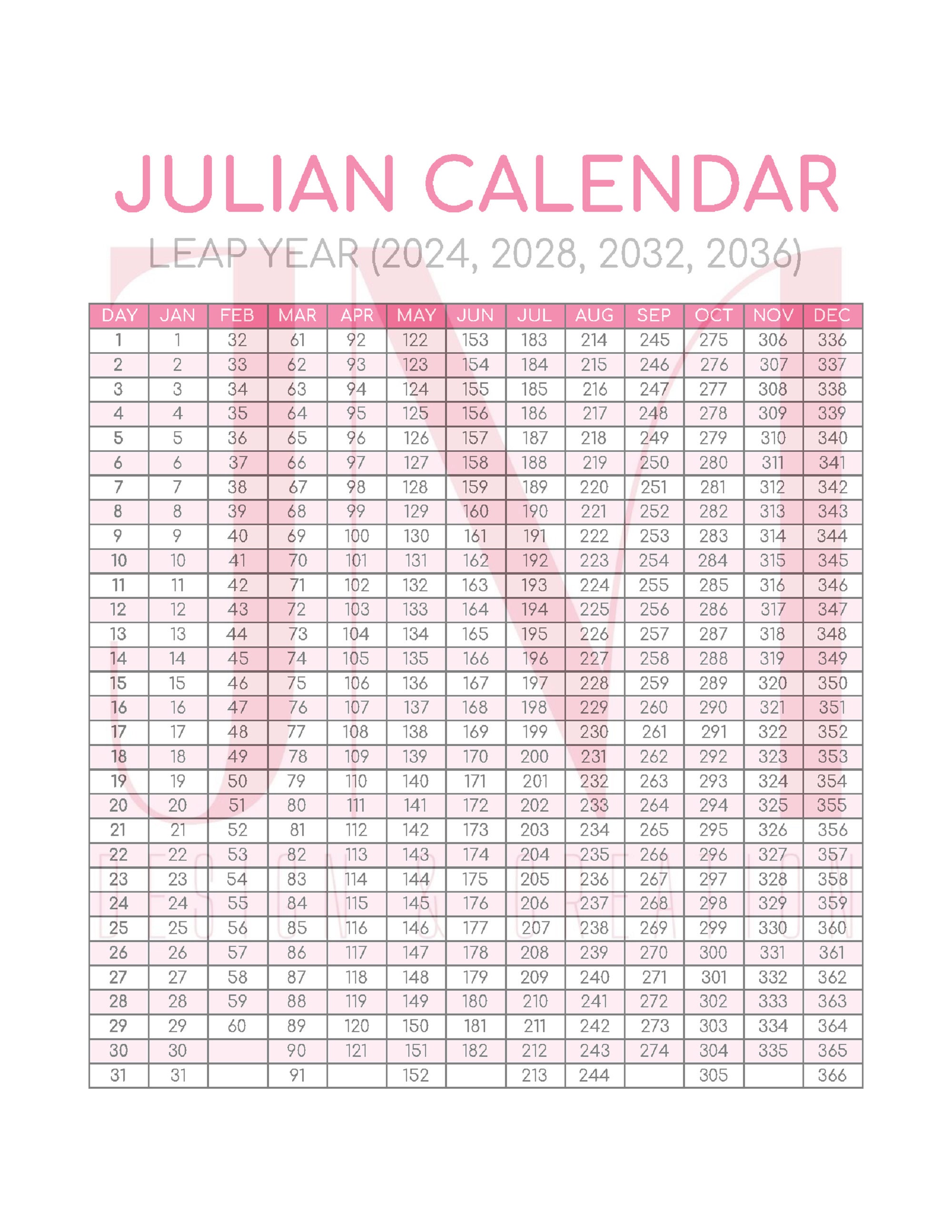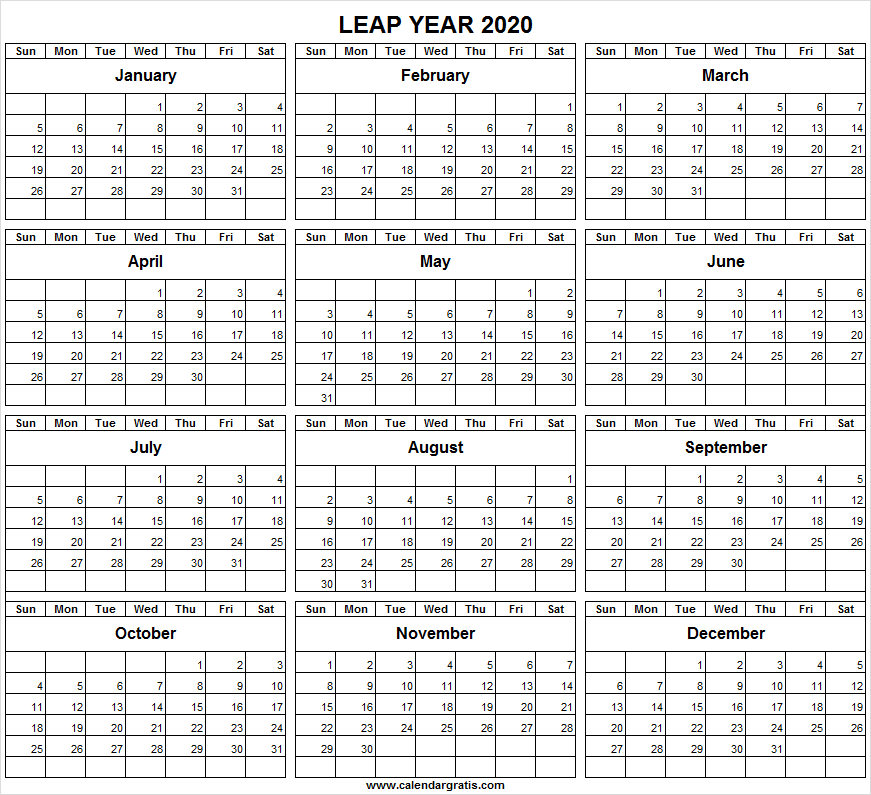Calendar With Leap Year
Calendar With Leap Year - Also known as an intercalary year or bissextile year, a leap year is a calendar year containing an additional day. It takes approximately 365.25 days for earth to orbit the sun — a solar year. A leap year is a year with 366 days instead of 365; We usually round the days in a calendar year to 365. Web list of every leap year. Web a leap year is a year that does not have 365 days like a normal year, but 366 days. A leap year is a year that has 366 days, instead of the usual 365 days. How to know if it is a leap year: In leap years, february 29th is added as leap day, which doesn't exist in a normal year. 2024 is a leap year.
A leap year is every 4 years, but not every 100 years, then again. Intercalation, insertion of days or months into a calendar to bring it into line with the solar year (year of the seasons). Leap years are any year that can be exactly divided by 4 (such as 2020,. Web however, nearly every four years is a leap year, when one extra—or intercalary—day, is added on 29 february, making the leap year in the gregorian calendar 366 days long. Out of every 400 years in the gregorian. Ancient civilizations had calendars that made periodic. So how did it all begin and why? There are roughly 365.24 days in a year, which means that we need to add 1 extra day once every. Web a leap year is a year that does not have 365 days like a normal year, but 366 days. Web the leap year calculator allows you to check if the given year is a leap year and find all the leap years in a given range.
Every 4 years in february one. Web a leap year is a year that does not have 365 days like a normal year, but 366 days. It takes approximately 365.25 days for earth to orbit the sun — a solar year. The additional day (leap day) is the 29th of february. A leap year is a year that has 366 days, instead of the usual 365 days. It’s a delight for the calendar and math nerds among us. So how did it all begin and why? A leap year is every 4 years, but not every 100 years, then again. This happens every four years, when an extra day, february 29th, is added to the. Please enter a year in the following form, and our calculator will check for you if the entered year is a leap year, i.e.
A Calendar on February 29 on a Leap Year, Leap Day Stock Image Image
Web the short answer: It’s a delight for the calendar and math nerds among us. Web yes, 2024 is a leap year. One example is the periodic. Web 22 rows see all leap years between 2024 and 2100.
Leap Year Calendar List
A leap year is a year that has 366 days, instead of the usual 365 days. Ancient civilizations had calendars that made periodic. Leap years are any year that can be exactly divided by 4 (such as 2020,. Web in leap years, the first and last days fall on different days of the week. It starts on a monday and.
Leap year calendar with red mark on 29 February Stock Photo by
A leap year is every 4 years, but not every 100 years, then again. Web a leap year is a year that does not have 365 days like a normal year, but 366 days. Out of every 400 years in the gregorian. Web yes, 2024 is a leap year. Please enter a year in the following form, and our calculator.
2021 Julian Calendar With Leap Year Example Calendar Printable
Web leap years in the international fixed calendar contain 366 days, and its occurrence follows the gregorian rule. There is a leap year in every year whose number is divisible. Web a leap year is a year that does not have 365 days like a normal year, but 366 days. When it's a leap year? It starts on a monday.
Leap year calendar hires stock photography and images Alamy
Out of every 400 years in the gregorian. Web however, nearly every four years is a leap year, when one extra—or intercalary—day, is added on 29 february, making the leap year in the gregorian calendar 366 days long. It has 366 days instead of 365. Web the leap year calculator allows you to check if the given year is a.
JULIAN DATE CALENDAR Leap Year Military Minimalist Design Etsy Australia
Web however, nearly every four years is a leap year, when one extra—or intercalary—day, is added on 29 february, making the leap year in the gregorian calendar 366 days long. How to know if it is a leap year: Web a leap year is a year that does not have 365 days like a normal year, but 366 days. Out.
Leap Year 2020 Calendar 366 Days List of Leap Year 2020, 2024, 2028
Web yes, 2024 is a leap year. The additional day (leap day) is the 29th of february. One example is the periodic. Web list of every leap year. Web a leap year occurs when one day is added to the calendar every four years.
Leap Year Calendar 2024 Dixie Frannie
Web 22 rows see all leap years between 2024 and 2100. Intercalation, insertion of days or months into a calendar to bring it into line with the solar year (year of the seasons). It starts on a monday and ends on a tuesday. Web calculator to check if a year is a leap year. It’s a delight for the calendar.
Leap Year 2020 Calendar 366 Days List of Leap Year 2020, 2024, 2028
A leap year occurs only every four. Web in leap years, the first and last days fall on different days of the week. Also known as an intercalary year or bissextile year, a leap year is a calendar year containing an additional day. Web what is a leap year? It takes approximately 365.25 days for earth to orbit the sun.
A blue calendar on February 29, 2024 on a leap year or leap day on a
In leap years, february 29th is added as leap day, which doesn't exist in a normal year. Leap years are any year that can be exactly divided by 4 (such as 2020,. Out of every 400 years in the gregorian. Web 22 rows see all leap years between 2024 and 2100. There are roughly 365.24 days in a year, which.
Web Yes, 2024 Is A Leap Year.
Web a leap year occurs when one day is added to the calendar every four years. Web in leap years, the first and last days fall on different days of the week. Web who created leap year? Web calculator to check if a year is a leap year.
Check If 2024 Is A Leap Year,.
Ancient civilizations had calendars that made periodic. It’s a delight for the calendar and math nerds among us. Web however, nearly every four years is a leap year, when one extra—or intercalary—day, is added on 29 february, making the leap year in the gregorian calendar 366 days long. A leap year is a year that has 366 days, instead of the usual 365 days.
When It's A Leap Year?
It takes approximately 365.25 days for earth to orbit the sun — a solar year. 2024 is a leap year. A leap year is every 4 years, but not every 100 years, then again. There are roughly 365.24 days in a year, which means that we need to add 1 extra day once every.
In Leap Years, February 29Th Is Added As Leap Day, Which Doesn't Exist In A Normal Year.
Every 4 years in february one. Intercalation, insertion of days or months into a calendar to bring it into line with the solar year (year of the seasons). So how did it all begin and why? Out of every 400 years in the gregorian.

